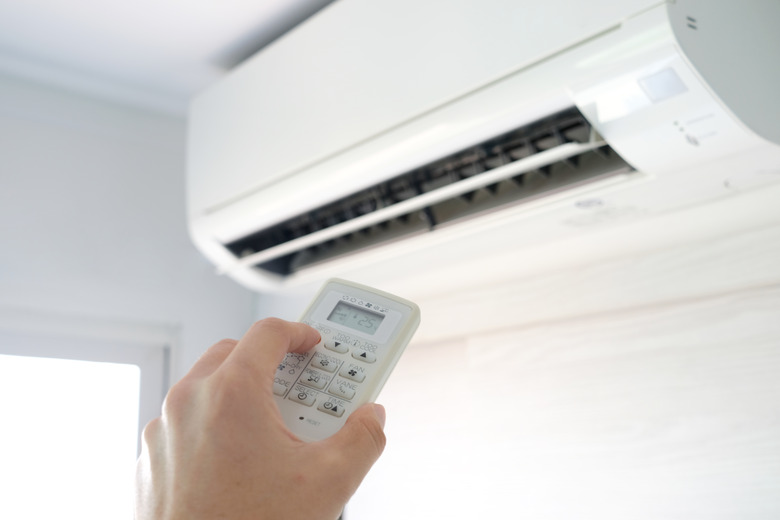How To Make Sure Your A/C Doesn't Drive Up Your Electric Bill This Summer
The warm weather season has officially arrived and for many of us, this means turning on the air conditioning for the first time in months. Unfortunately, without the right prep work, your A/C unit might not run as smoothly as it should — and could drive up your electric bill as a result.
Not sure what steps to take to make sure your air conditioner is ready to handle the hot summer weather ahead? We asked Victar Belavus and Eli Raviv, certified technicians at 212 HVAC for tips on how to keep your energy bills down while running your AC 'round the clock and here's what they had to say.
1. Keep it clean.
1. Keep it clean.
If you aren't cleaning the vents and registers in your air conditioning unit regularly, you're doing it wrong. "An accumulation of dirt, dust, and debris can block the air flow of your A/C," Belavus says. "Take care to dust and wipe down the vents and slats in your unit regularly to keep a good air flow."
2. Change the air filter.
2. Change the
air filter.
Not only will a dirty air filter blow dirt and allergens around your home, it can drive up your electric bill, too. "A dirty or worn-out filter will force your unit to work harder and expend more energy," Raviv says. "Replace the filter every couple of months to keep the air flow clean and your energy costs down."
3. Keep heat and sunlight at bay.
3. Keep heat and sunlight at bay.
Nothing heats up a room faster than unsealed windows, which is why Belavus says you should tape off any cracks or gaps with weather-resistant tape. "Control the room temperature by sealing any leaks in your windows," he says. "If the temp is still too warm, try blocking out heavy sunlight with blackout curtains."
4. Set your thermostat accordingly.
4. Set your thermostat accordingly.
According to Raviv, setting your thermostat incorrectly can wind up costing you more than cool air in the long run. "The thermostat of your A/C unit needs to be set to the comfortable temperature of 73.4°F (23°C) before it can be adjusted to a lower level," Raviv says. "Additionally, the thermostat should not be set lower than 12 degrees of the outside temperature, or the A/C will be at its limit capacity."
5. Keep your A/C unit level.
5. Keep your A/C unit level.
If you have an outdoor air conditioning unit, Belavus says to make sure its base is kept leveled at all times. "Keeping an outside unit on level ground stops it from collecting chunks of dust and debris and helps keep an optimum air flow," he explains. "This way it doesn't expend more energy than necessary."
6. Pick the right size A/C.
6. Pick the right
size A/C.
If you thought the bigger the A/C, the better, then Raviv says you'd be mistaken. "The wrong size of air conditioning unit will only wind up costing you more," he says. "Measure the room you are going to put the A/C in before buying, so you can be sure you're getting the right amount of coverage without overspending."
7. Invest in an energy-efficient unit.
7. Invest in an
energy-efficient unit.
If you weren't already hip to the Energy Efficiency Ratio (EER) of your A/C, then now's the time to smarten up. EER measures the ratio of output cooling energy to input electrical energy of your air conditioner, and Raviv says the higher the EER the lower the cost for electricity. Do yourself and your bank account a solid and buy an A/C unit with an EER rating of 11 and above to keep your energy bills down this summer.
Top-Rated Picks:
Top-Rated Picks:
SereneLife 12,000 BTU Portable 4-in-1 Air Conditioner, $437.99 (EER: 11)
LG 10,000 BTU Smart Window Air Conditioner, $379.99 (EER: 12.1)
Whynter 12,000 BTU Portable Air Conditioner, $443.06 (EER: 12)
